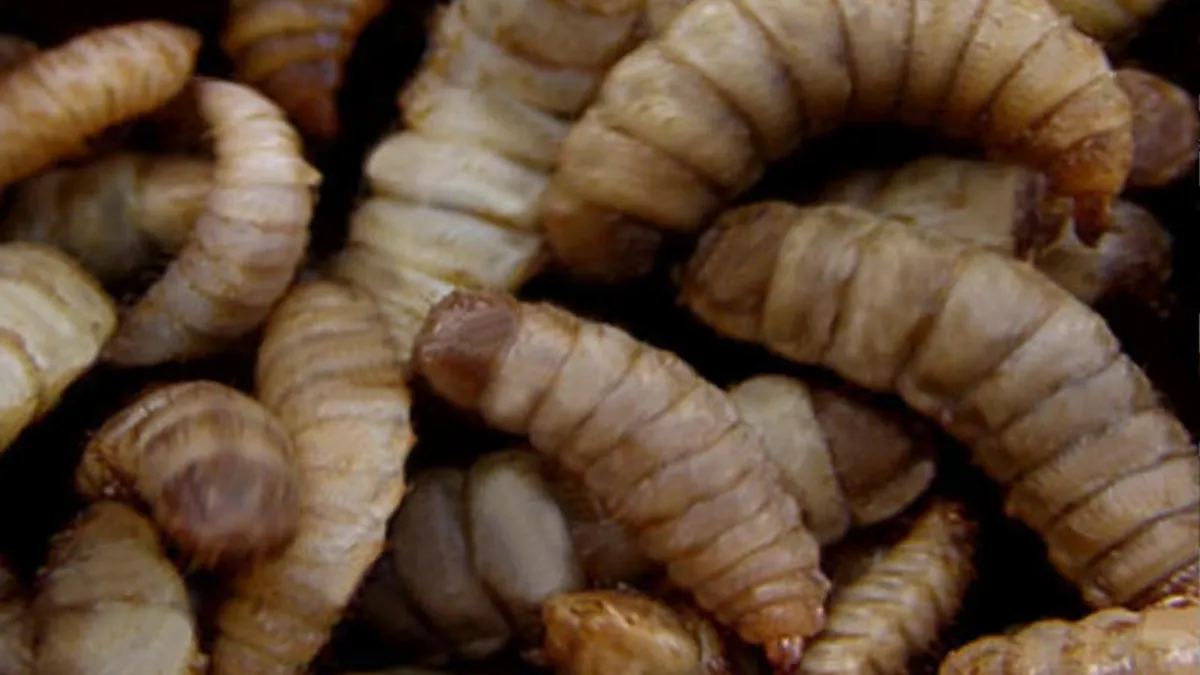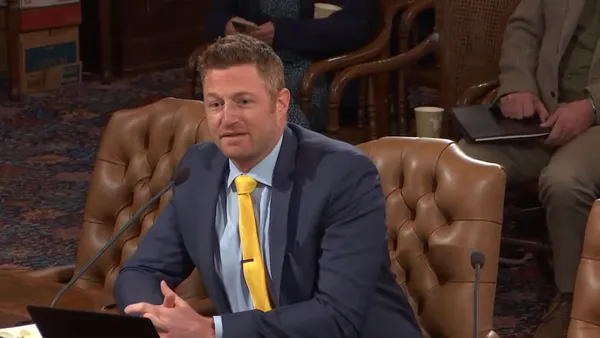Dive Brief:
- A farm in China's Sichuan province has been gaining notoriety for its use of maggots to eat through food waste. The black solider fly larvae can eat double their weight in food in about four hours, as reported by the South China Morning Post.
- The farm buys food scraps from a commercial waste collector called Chengwei Environment and lets the maggots do the rest. Once finished, the larvae can be sold as animal feed and their waste can be used to make fertilizer.
- This practice has become more common in China over the past three years and multiple farms are now using the black soldier fly larvae to do similar work. China is one of multiple countries — including Canada, Australia and South Africa — that allow poultry and fish to be fed with insects, though regulations are more strict in the U.S.
Dive Insight:
Maggots are already known for their unwelcome presence inside garbage cans on particularly hot days — some New York City collection workers even call them "disco rice" — but this concept could give them a whole new role in the waste management process. In the spirit of composting sites that use worms, or allow chickens to get first pick of food scrap deliveries, the maggot method keeps with the idea of organics processing as a natural process. Because the larvae are known for retaining high amounts of fat and protein content, they also help keep these nutrients in the food cycle when eaten by livestock that are in turn eaten by humans.
While taking this beyond Chinese farms to any type of practical application in the U.S. may seem unlikely, it still pushes the conversation about exploring all options to process food scraps. As more municipalities look for ways to divert the material, but struggle with the costs, new ideas are often welcome. Depending on local factors some may decide that co-digestion at a local water treatment plant is the best way to go, while others may opt to build their own composting operations.
Even in China, where regulations are more favorable for this type of operation, maggots alone won't solve the food waste problem. The country produces an estimated 40 million metric tons of food waste per year and major cities such as Beijing are still working to boost recycling efforts for all materials. Yet if more farms can help keep organic material out of the country's growing number of waste-to-energy facilities in a low-impact way, that will still make a difference.















